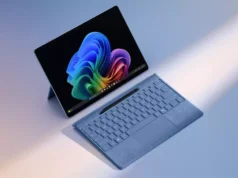Apple may not be able to stick to its timeline of delivering a 5G capable iPhone by 2019, or maybe even in 2020. And much of that has to do with its ongoing patent war with leading chip manufacturer Qualcomm which simply turned down its request to supply Apple with 5G modems.
Samsung is the other viable source for Apple for 5G modems though it is learnt the South Korean manufacturer too has shied away from supplying the said modems. Samsung said it just does not have enough production of its own Exynos 5100 modems to meet Apple’s requirements after meeting its own.
Samsung has already joined the 5G bandwagon by launching its own 5G version of S10. The phone is set to go on sale starting April 5 and will initially be available only in South Korea and for a starting price of around $1220 for the 256 GB model.
Meanwhile, for Apple, its options for a 5G modem is limited to only Intel and MediaTek though both come with a rider. For Intel, it’s down to outright unavailability as it is still working on its XMM 8160 5G modem and is not likely to come up with a working version before at least 2020.
As for MediaTek, its Helio M70 does come across as an alternative 5G modem though the only issue here is that experts claim it to be below par and fails to meet Apple’s standards. All of this does put Apple in a tight spot, more so after it forced to make do with Intel LTE modems, in spite of those having inferior performance credentials compared to 4G LTE modems from Qualcomm.
Apple’s next iPhone might have triple rear camera housed in a square bump
What could also be hurting Apple’s prospects is the fact the telecom operators the world over has been working to introduce 5G networks, much of which is expected to be ready by next year itself. Under the circumstances, Apple not being able to offer a 5G capable iPhone will no doubt be a huge setback for the company.










